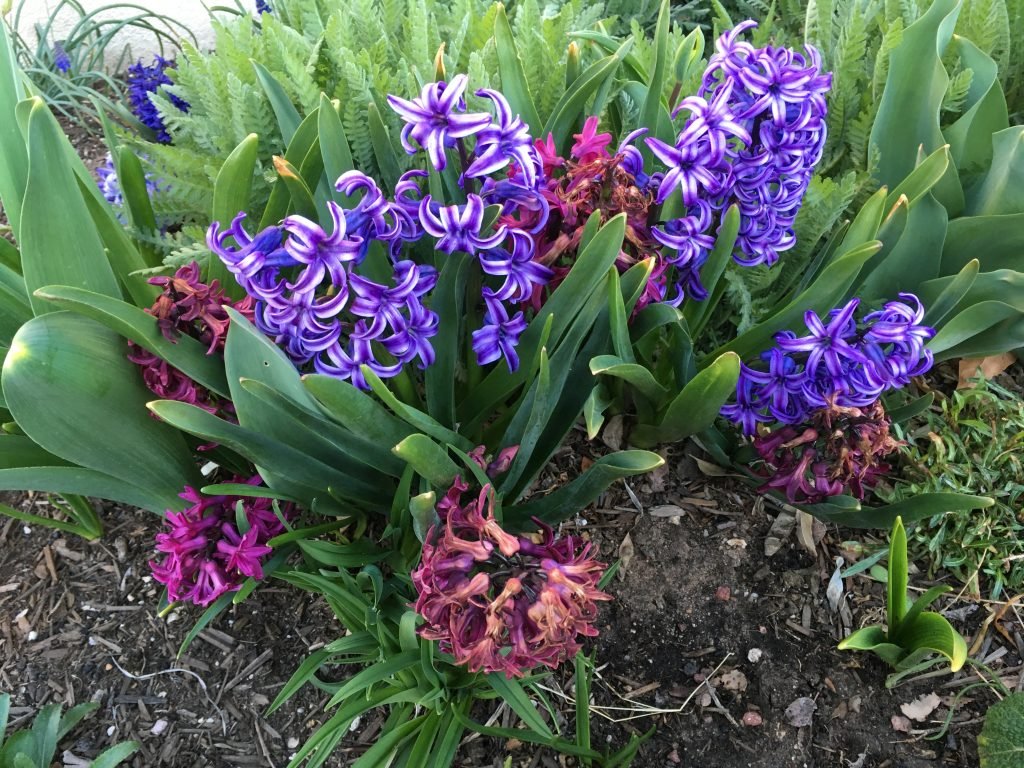Springtime Digging
Spring has officially arrived. I have daffodils and hyacinths in the garden. This week the first irises appeared. The roses are red with new leaves. The trees are greening right before our eyes. The season feels early this year, but maybe it’s me that is off. I am willing to accept that my internal calendar doesn’t always mark these things accurately.
Spring in a piano studio means competitions and festivals, something I have plenty of misgivings about. I have so many misgivings, in fact, that every spring I debate about whether or not I want to even bother. I resent the idea that the six minutes of competition time are meaningful on any level, and struggle with the reality that the time required to prepare for a demanding performance of this kind means we have to give up a number of other things in the short term. I worry that if teachers hold power over students, and mine certainly did over me, then the word of a judge is like a word spoken by God. Some judges are intuitive and wise, and know how to reinforce the good work of teaching music and creating musicians. Other judges are not intuitive or wise. They write mean, spiteful comments. They do real damage. This is not always a gamble I want to play.
But competitions are, unfortunately, something the world too readily understands and can make sense of, which means they are too often the means in which a non-musician can evaluate a music teacher’s competence and ability. While certainly the pedagogical knowledge needed in order to train students to play at a competitive level is a skill in its own right, it is hardly the end of the story. The real test of good teaching is to take any student who walks through the door and to turn him or her into a musician, but sadly, the world doesn’t often see it that way.
In so many respects, it would make life in the studio easier to forgo competitions altogether. There is always enough to do around here without outside pressures and deadlines. But having said that, certain students are motivated by the goal and the accountability competitions and festivals bring. They are psychologically and musically healthy enough to handle whatever the outcome might be. Furthermore, I know that I teach more carefully when I know another pair of ears will soon be hearing my students play. These are all good things. This is why, even with my overwhelming reluctance, I find myself once again in the position of preparing students for an upcoming festival.
To this end, last week James and I were working on Puck by Grieg. James is nine, a precocious and spunky kid. In many respects, he is a perfect competition candidate: he works hard and plays well under pressure. But more than that, he has plenty in his life besides piano. A piano festival is a little like soccer in his young eyes. “Amy,” he said to me when he told me about his last game, “Sometimes you win, sometimes you don’t.”
James loves this piece, although Puck is deceptively tricky. The middle section requires careful voicing of the thick right hand chords. In his last lesson we worked for a while on this skill; I showed him how to practice holding the top note of the chord while the rest of the notes are played staccato to help reinforce the highest voice. After a bit I said to James, “Can you work on this at home?” “Yes,” he said, “but Amy, don’t you think you should have mentioned this chord thing before now? There’s not a lot of time left.”
He was right, of course. There’s not a lot of time left; we are working under a deadline. But while competitions have their own particular pressures, the truth is that one could dig forever into Puck or into a Bach French suite or into a Beethoven sonata, such is the power of a great masterpiece. As long as we are willing to show up and practice, new challenges—psychologically, musically, spiritually—will continue to appear. No one needs to go seeking exotic adventures in order to gain enlightenment. The people, music, soccer games, piano competitions and deadlines in our lives provide enough rough edges to rub against for ten thousand lifetimes. There is always more to work on, some other chord thing to sort out. Or, as my teacher Jane Allen used to say, “No matter who wins, the next day everyone still has to practice.”
It is true, just as it is true that there will never be enough time left. Spring comes earlier every year, or so it seems. Clocks spring forward, the hours race by. And day after day after day after day, we begin again, carving ourselves and our practices into existence.
